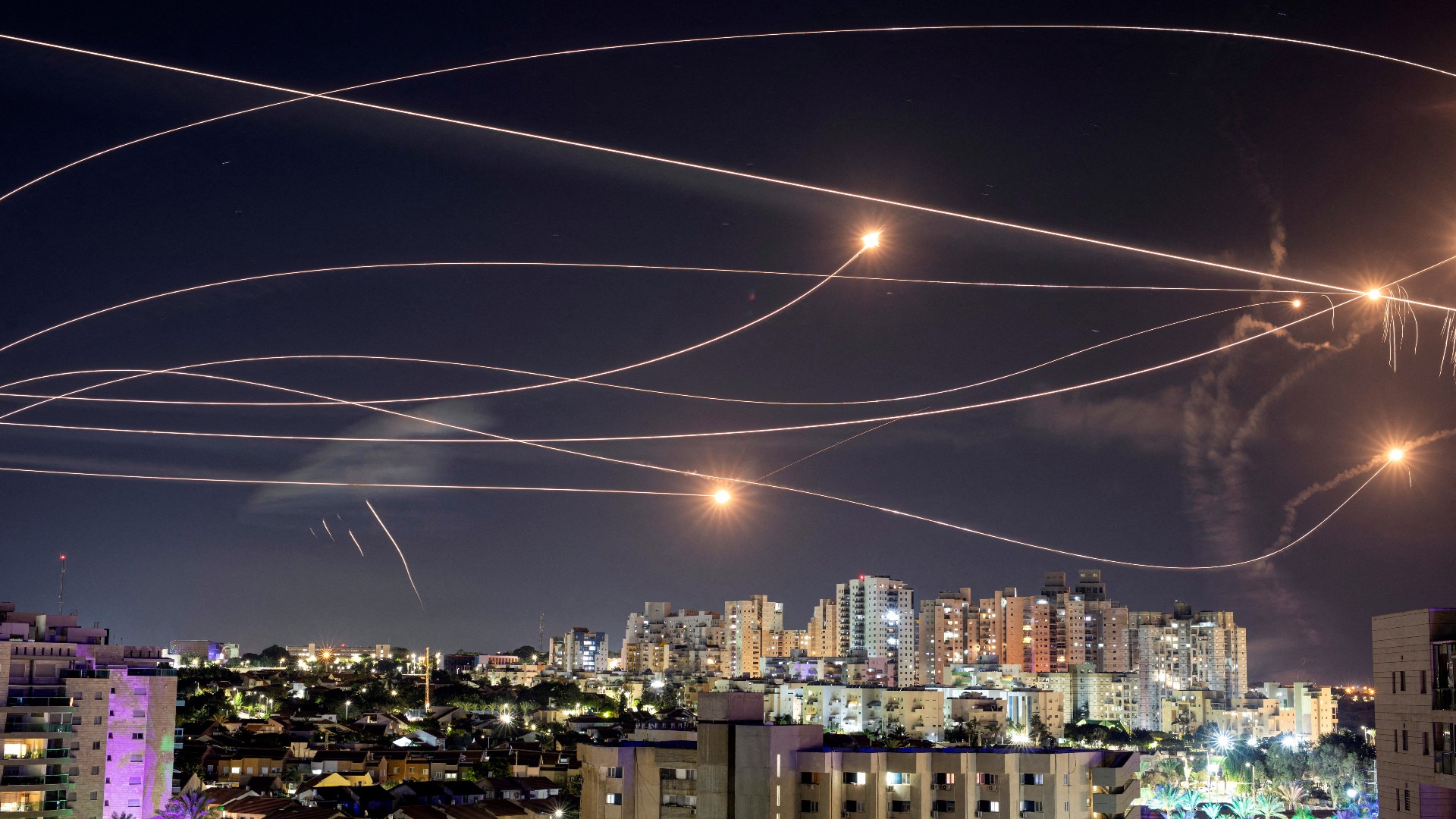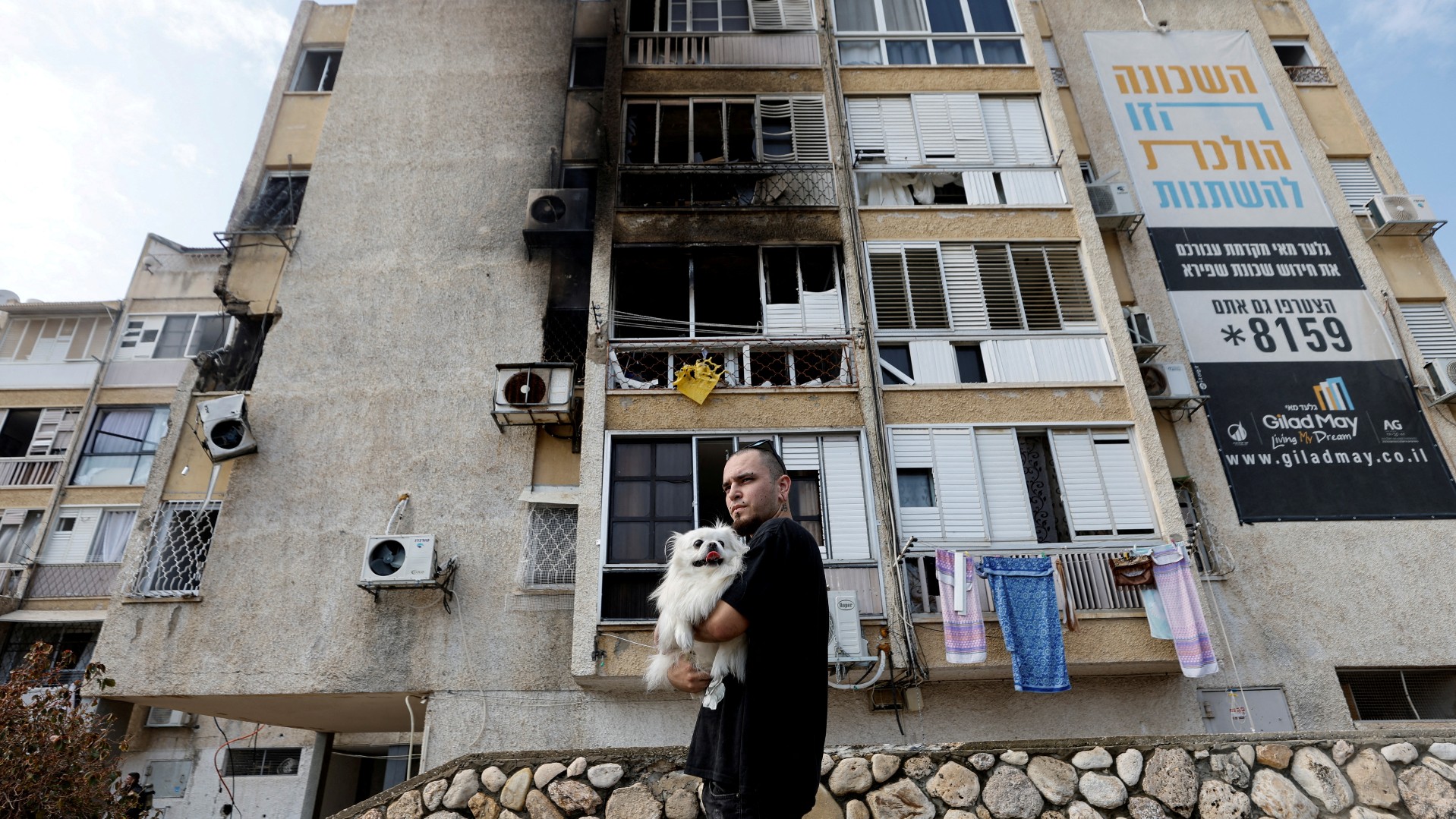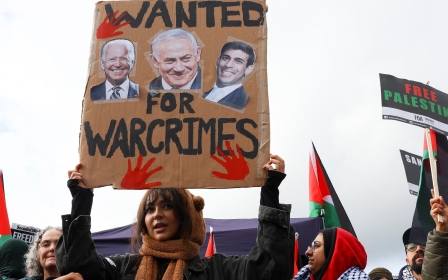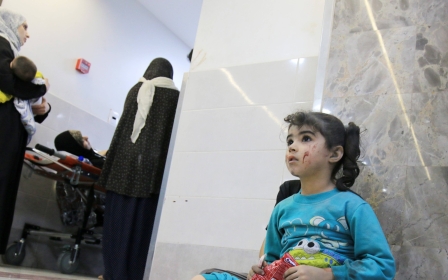Israel-Palestine war: Ashkelon a ghost city as Gaza's rockets rain down
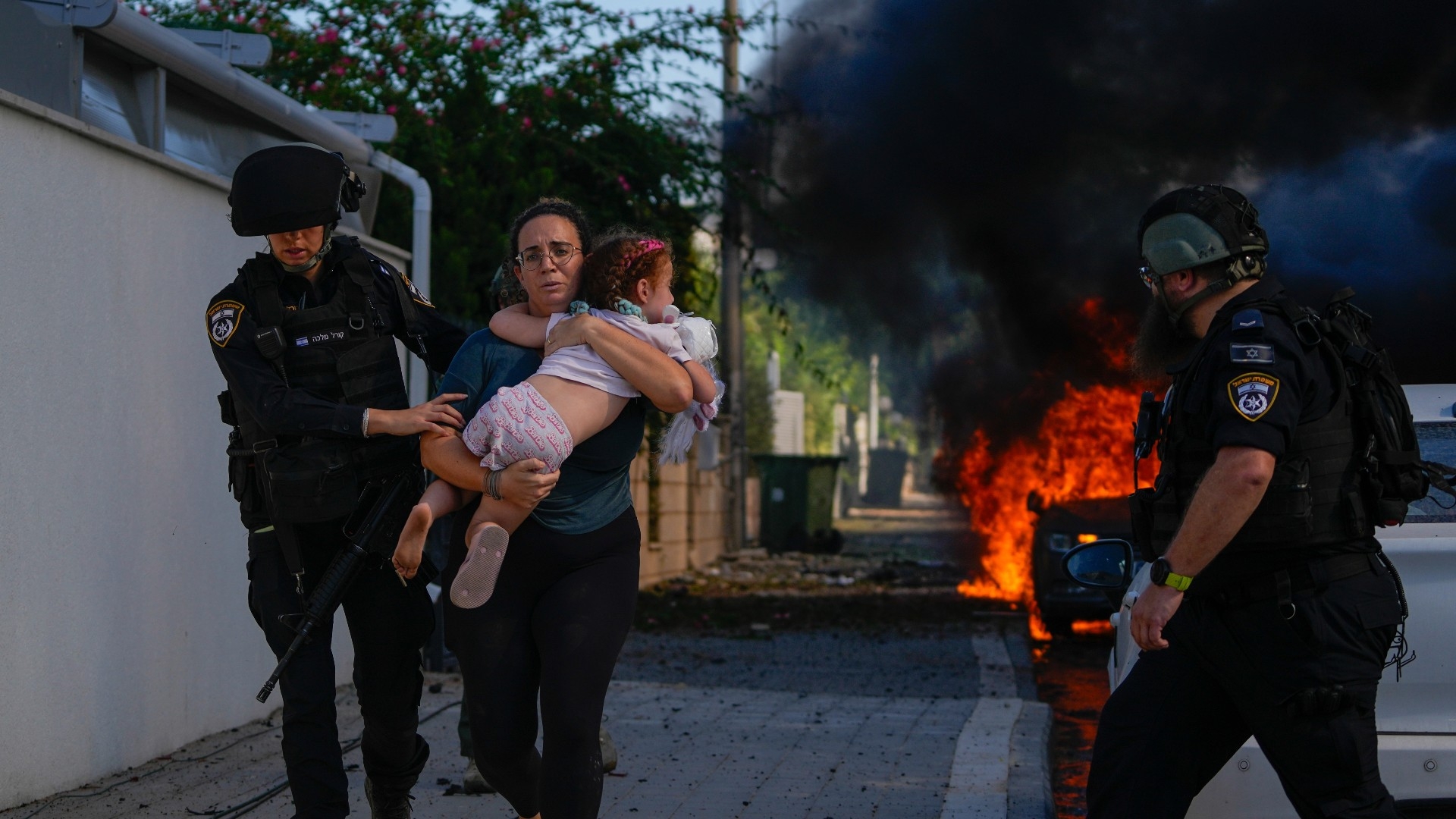
The central bus station of Israel's Ashkelon was deserted, like almost the entire city these days.
Two old men of Ethiopian origin stood near the ticket office, staring at the list of destinations. But they did not approach to buy tickets.
On a bench at the platform for the bus to Jerusalem sat a woman in her 70s, hunched over and radiating restlessness.
Sima, a widow born in Ashkelon, said she'd accepted an offer from Ashkelon's welfare services to evacuate to Jerusalem.
This morning, just as she was boarding a bus, she discovered that due to stress she had forgotten some of her medication and other important items.
"I ran to my apartment, I took what I needed, and now I'm here waiting for the bus to Jerusalem, dying of fear that there will be more missiles before it arrives," she told Middle East Eye, taking nervous glances at the sky as if trying to spot another Palestinian rocket before it arrives.
Ashkelon is a coastal city in southern Israel between the Negev (Naqab) desert and the lowlands at the western end of the Lachish region. It's also a handful of kilometres from the Gaza Strip.
The city has about 180,000 residents, including many originally from the former Soviet Union and Ethiopia.
Known in Arabic as Asqalan, it is one of the oldest cities in the world, dating back more than 5,000 years. Its name is believed to be related to the semitic root of the word for "weight", and therefore Israel's shekel currency.
Ashkelon is mentioned for the first time in Egyptian texts from around 1,900 BCE, and then in Hebrew in the Bible's Book of Joshua. It is also mentioned in one of the Prophet Muhammad's hadiths, saying "the best type of defensive fighting will be in Askalan" at the end of times.
Follow Middle East Eye's live coverage of the Israel-Palestine war here
In 1948, Ashkelon's 10,000 Palestinians were expelled, mostly to Gaza.
Since the 7 October Palestinian attack on Israeli communities near the Gaza Strip, which killed around 1,400 Israelis, Ashkelon has been struck by a huge amount of rockets and missiles fired from the enclave. More than 1,000 rockets have been fired at the city, with 340 fallout sites and 180 direct hits.
This constitutes around a quarter of all Palestinian rockets fired into Israeli territory, with more than 200 sent towards Ashkelon alone for an hour on 14 October.
Meanwhile in Gaza, relentless Israeli bombing has killed more than 7,300 Palestinians, and power, communications, food and water have been cut from the coastal enclave.
Damage everywhere, people nowhere
In Ashkelon's oldest neighbourhoods, 40,000 residents have no shelter at home. The elderly and families with small children are unable to reach shelters within the 10 seconds they are given by alarms before rockets strike.
Now, the owners of the essential businesses that remain in the city describe it as a ghost town.
"There are no people on the streets. The few shops still open close in the afternoon and people lock themselves up at home," said Eli Gutman, owner of a restaurant next to the beach.
Damage to property can be seen everywhere, with destroyed houses and cars, let alone bodies of the dead.
Yet Ashkelon is not counted as one of the communities affected by the fighting entitled to compensation from the government. Nor were its inhabitants evacuated until Wednesday, causing rage and frustration from residents and Mayor Tomer Glam.
The day before the evacuation, Ashkelon looked like it had already been emptied.
A short distance from the bus station stood the town hall, mostly abandoned. In the row of shops next to the main entrance, all the windows were cracked. One no longer had a door, only the metal frame remaining.
Except for the phone shop, all the stores have been locked up. At the entrance to the city hall sat Rami, very close to the entrance to a shelter, telling those who come that there iss no one in the building to receive them.
Behind the building is a separate entrance to the municipality's war room, fenced off by police barriers, where six armed guards stand and filter the entry of residents.
'When I see my wife under pressure and my small children, it crosses my mind that maybe I should leave'
- Amichai, KATSA worker
Only people with urgent needs can enter, said a commander of the guards.
Tzilla, owner of a large coffee shop and bakery, tried her best to smile at the few customers who still come, but admitted that her strength is running out.
"We have no shelter here on this street. When there's an alarm, the customers and we, the staff, huddle in the kitchen," she told MEE.
"It doesn't make sense... in the past, every customer would receive attention from me, a little small talk, a few jokes. Today I tell them 'hurry, hurry, take your coffee and leave the bakery' because there is not enough space in the kitchen to protect them from missiles."
The prospect of falling rockets is a serious concern for workers at KATSA, the oil pipeline near the city's entrance, which is a favourite target.
"It is very dangerous there," said Amichai, a 33-year-old father of three, who was born in Ashkelon.
"Before I got married, I lived in the USA for several years. And although I returned of my own free will and I love the country and Ashkelon, there are moments, when I see my wife under pressure and my small children, that it crosses my mind that maybe I should leave here again, at least for a while."
Lack of support
Glam, the mayor, told MEE that more must be done to support the city.
"We must fill in protection gaps; establish a resilience centre to respond to victims of anxiety, many of them children; help businesses in the city that take a severe economic blow in each round of conflict with Gaza, some of which do not survive until the next conflict; promote programmes to protect old neighbourhoods; and attract companies and factories to the region," he said.
"In order to implement all these projects, we need the government with us."
Last week, Glam sent Prime Minister Benjamin Netanyahu a letter outlining all this.
"We are not asking for mercy or favours, we are asking for what we deserve, and it is desirable that it happens now, because the next round, unfortunately, is around the corner," Glam added.
"Ashkelon has been under attack for 16 years. Every time we were under missiles in every operation or attack - or just because they felt like throwing missiles at us. And although Ashkelon is considered the most bombed city in Israel, we do not receive equal rights to Sderot and the area surrounding the Gaza Strip."
The industrial areas are also emptier than ever.
Shmuel Donnerstein, chairman and owner of Rav Bariah, a manufacturer of armoured doors, said that only 100 workers arrived at his factory this week, out of a total of 580.
Emergency economic regulations, which include compensation for business owners, covers communities up to 7km from the Gaza Strip. Ashkelon misses out by 200 metres so does not receive this assistance, despite a significant part of its industrial area actually falling within the 7km range.
Donnerstein had a message for the government: "Stop talking tall and start showing actions."
At 2pm, the bus to Jerusalem pulled up at the platform. The vehicle, which can carry up to 56 passengers, set off with only two women.
"We must observe the minimum routine," the driver said to one of the passengers. "Continuing life is also an important task."
Middle East Eye propose une couverture et une analyse indépendantes et incomparables du Moyen-Orient, de l’Afrique du Nord et d’autres régions du monde. Pour en savoir plus sur la reprise de ce contenu et les frais qui s’appliquent, veuillez remplir ce formulaire [en anglais]. Pour en savoir plus sur MEE, cliquez ici [en anglais].


